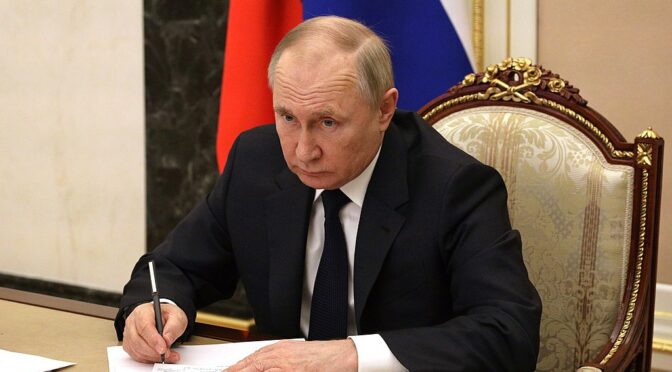Article published by the Gatestone Institute, 10 May 2022. © Richard Kemp
Great Britain is Russian President Vladimir Putin’s public enemy number one. In March the Kremlin branded UK Prime Minister Boris Johnson the most active anti-Russian leader. A few days ago on television, Putin’s propagandist Dmitry Kiselyov fancifully suggested Russia should drown Britain in a radioactive tsunami created by Poseidon nuclear torpedos that would leave survivors in ‘a radioactive desert, unfit for anything for a very long time’.
Putin is upset about Britain’s stance over Ukraine, leading Europe and much of the world in aggressive sanctions against Russia; and pouring in financial and military aid plus decisive secret intelligence to help keep Kiev in the fight.
Needless to say, front-line states facing Russia take the opposite view of the UK. During visits to Poland and Finland in the last two weeks, the enthusiasm for Britain was palpable — among politicians, military and ordinary people alike. As a Brit I don’t remember such a warm reception anywhere in the world except perhaps in the US when we stood firmly by their side in the aftermath of 9/11.
Poles, Finns, Latvians, Lithuanians and other close neighbours of the Russian bully also appreciate the UK’s forward-leaning role in NATO’s pre-emptive deployment, positioning increased combat forces on their territory alongside other allies, predominantly the US.
Promises by NATO leaders that Putin will face the consequences if any of his soldiers so much as puts a toe-cap onto NATO soil of course reassure these beleaguered countries. But are we giving them false hope? Can eastern states really rely on the US and western European NATO members to ride to their aid if they get into a fight with Russia? Would we actually throw our young men and women against Putin’s steamroller — even the rather ramshackle steamroller that has been grinding its way across Ukraine?
If NATO blood would in fact be spilt should Russia invade Poland or the Baltic states, why have we utterly rejected the prospect of spilling it to help protect Ukraine from Putin’s mass killings, torture, rape and destruction? Ukraine is not a NATO member and NATO states have Continue reading









